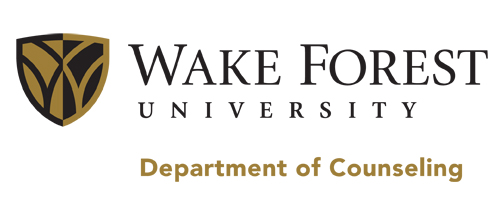M.Div/MA Dual Degree
The Master of Divinity/Master of Arts in Counseling Dual Degree
This degree is an academic program for graduate students in the full-time Reynolda Campus program who seek to enter vocations in religious leadership with skills in both theology and in counseling. Students enrolled into the dual degree program can complete the requirements for both the Divinity and Master of Arts in Counseling degrees in four years instead of the five years needed if each program is undertaken separately. The curriculum meets the accrediting standards for each degree program. The dual degree program is designed to ensure that students meet the educational requirements for licensure as counseling professionals in North Carolina and most other states.
Course Requirements and Structure of the Program
Students in the dual degree program spend the first two years of the four year program enrolled in graduate courses in the School of Divinity. Students spend the second two years of the joint program satisfying requirements for the Master of Arts in Counseling.
During the first two years, students complete on average 51-54 semester hours of core courses, area electives and general electives. The two-semester internship required during the second year of the MDiv curriculum is deferred until the second year of the counseling program. Dual degree students are required to complete through an ACPE accredited program a basic unit of Clinical Pastoral Education (CPE). Students generally meet the CPE requirement in a summer session during their first two years of the program. Guidelines for applying CPE credit toward the degree can be obtained through the Office of the Academic Dean.
As part of the dual degree program, students are required to complete a series of one-hour capstone courses that emphasize intersections between theology and counseling. Dual degree students are expected to complete these courses beginning in their third year of the four year program. The capstone courses are offered through the School of Divinity.
Upon successful completion of the dual degree requirements, students receive both the Masters of Divinity and the Masters of Arts in Counseling degrees.
Admissions
The Process. Up to three students per year will be admitted to the M.Div./M.A.-Counseling dual degree program. Applicants must be accepted for admission by both the Department of Counseling and by the Divinity School. Applicants are required to submit a separate application to each school by January 15. First Year Divinity Students are eligible to apply for entry into the dual degree program if there is room in their particular cohort.
Applications for the Counseling Program are submitted through the Graduate School of Arts and Sciences at https://graduate.wfu.edu. Applications for the Divinity School are submitted directly to the Divinity School at http://www.wfu.edu/divinity.
Interviews. Based on the material contained in his or her application, an applicant may be invited for a virtual interview with the Department of Counseling. These interviews are typically scheduled for late February or early March.
After the interview phase, a joint admissions committee composed of members from both schools will make the final selection. Unsuccessful applicants to the dual degree program have the option of applying to the Divinity School by May 1 but would have to wait until January of the following year to apply for admission to the Department of Counseling or to reapply to the dual degree program.
Financial Assistance
During the Divinity School portion of the program. The Divinity School of Wake Forest University is committed to assisting students in meeting the basic educational and living expenses incurred while enrolled in the dual degree program. Merit-based awards will be offered on the basis of the applicant’s personal statement, academic transcripts, and letters of support from references. All merit-based awards are renewable for up to the two years of full-time study. Merit scholarships range from 25% to 100% of tuition. Many students qualify for more than one merit award. Need-based scholarships and grants are awarded on the basis of information applicants provide on the FAFSA form (Free Application for Federal Student Aid) and the Wake Forest Divinity School PROFILE form. Both forms are available from the Divinity School’s Office of Admissions & Student Services.
During the Counseling degree portion of the program. Students accepted to the dual degree program will be awarded partial tuition scholarships that cover about 80% of the cost from the Graduate School of Arts and Sciences for the two years they are enrolled in the Department of Counseling portion of the program. Each student also receives a reconditioned laptop computer.
Continuation in the Program
A joint committee composed of faculty from both schools will review the academic, personal and professional progress of dual degree students. Satisfactory academic progress in the Master of Arts in Counseling portion of the program is defined as maintaining a B or better grade point average. Expectations of personal and professional behaviors and/or attitudes are outlined in the Department of Counseling “Evaluation and Continuation Policy” which is posted on the website, on page 30 of the Student Handbook (revised Dec 2015). Continuing eligibility in the Master of Divinity program is outlined in the School of Divinity’s “Continuation Policy.”

